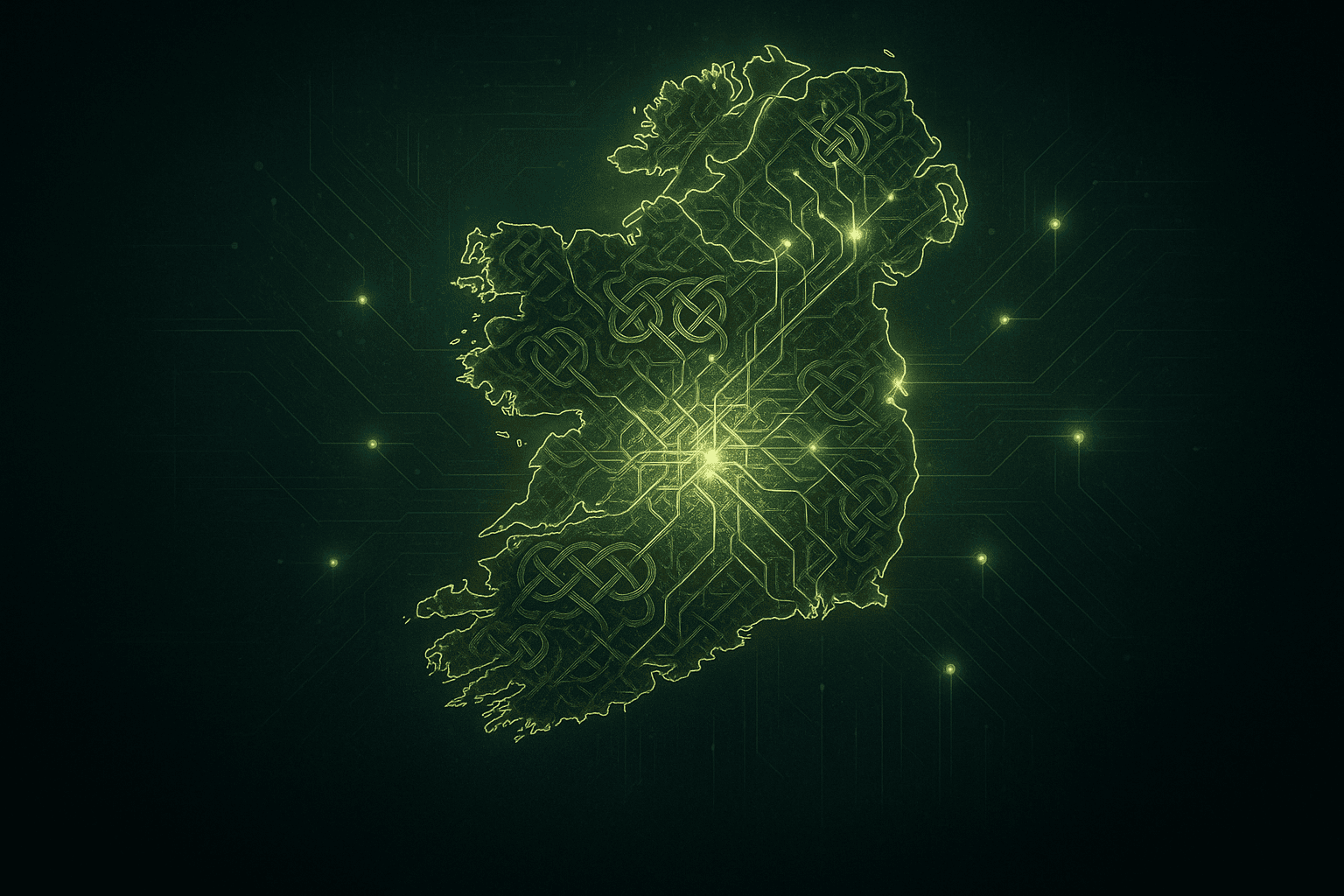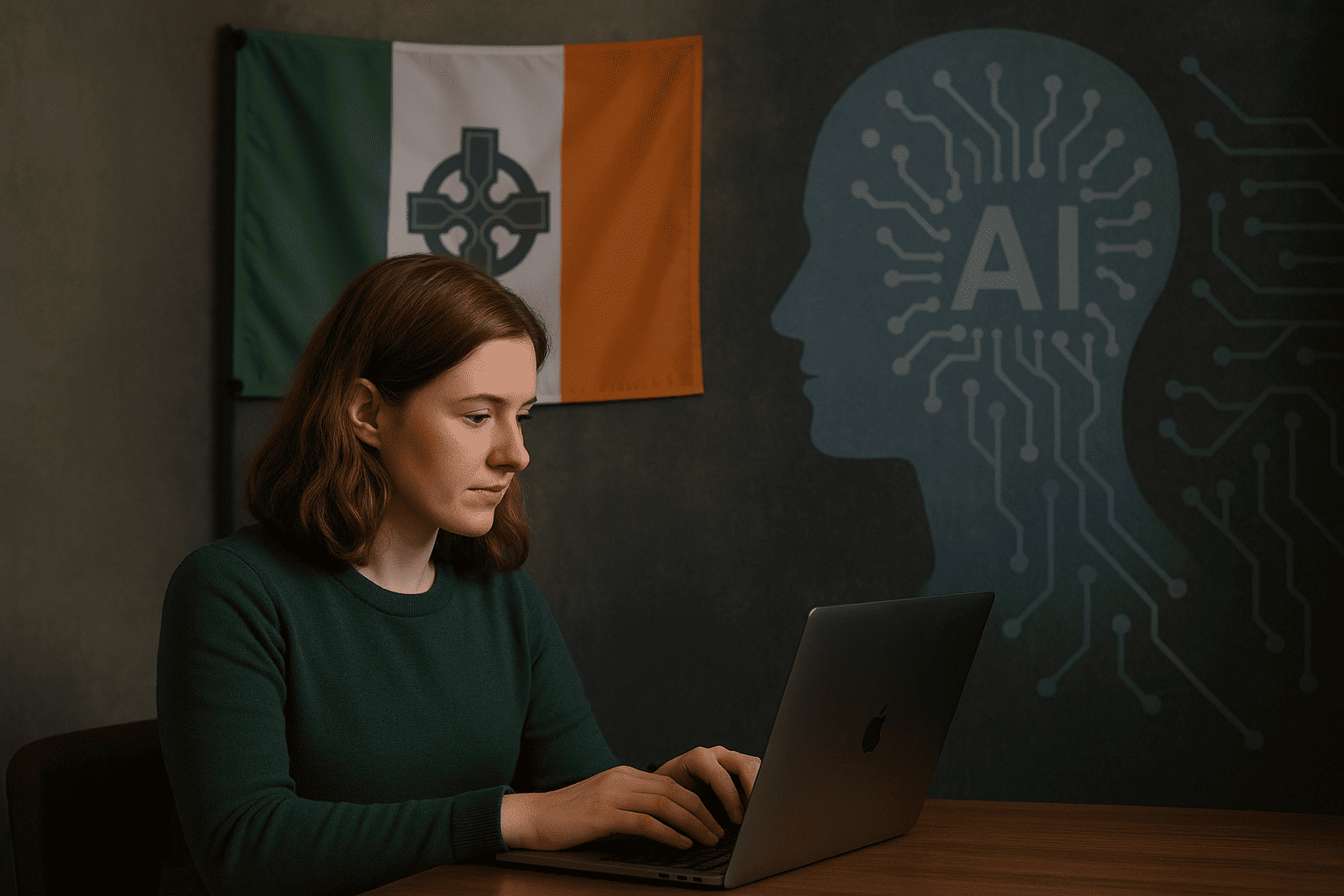
Ireland today ranks among Europe’s digital leaders. According to the Digital Decade Country Report 2025, over 89% of rural areas have broadband access, and 86% of citizens actively use public online services. In the past year alone, Irish tech companies attracted more than €400 million in investment, with over a quarter directed toward cybersecurity. It’s an impressive leap for a nation smaller than many global cities — yet behind these numbers lies a quieter, deeper concern: what happens to a language when even artificial intelligence doesn’t speak it?
For Ireland, Gaeilge is more than a means of communication — it is a cultural framework. The 2022 census shows that nearly 40% of the population have some command of the Irish language, yet only 4% use it daily. A language that survived colonization and waves of migration now faces the silence of the digital era — a silence filled not with voices but with algorithms.
The country’s response has been remarkable. At University College Cork, researchers launched UCCIX, the first large language model (LLM) trained entirely in Irish. They built a corpus of thousands of texts — parliamentary debates, newspaper archives, radio transcripts, and educational materials — to create a neural network that thinks in Gaeilge. The model doesn’t just translate; it captures cultural tone, recognizes idioms from Connemara and Kerry, and can analyze texts with a distinctly Irish rhythm.
For a minority language, this is more than a technical milestone — it’s a new mode of survival. If a language isn’t represented in algorithms, it effectively doesn’t exist in the future. Search engines, voice assistants, and chatbots all operate within the limits of what machines understand. UCCIX breaks that barrier: Irish now lives in code, in data, in the AI ecosystem — which means it exists in the world of tomorrow.
But cultural transformation begins not in laboratories, but in classrooms. Across Ireland, nearly 200 Gaelscoileanna — schools where all subjects are taught in Irish — are shaping a new generation. This isn’t nostalgia; it’s a reimagining of what progress looks like. Teachers like Aoife Ní Mhaoilchiaráin of Gaelcholáiste Reachrann in Dublin say Irish has become “the language of thinking” for their students. Programming lessons, debates on cyber ethics and climate policy, digital projects, and mini-games — all happen in Gaeilge. Teenagers are creating podcasts and TikTok videos about science, fashion, and music in a language once considered endangered.

This shift does more than inspire hope — it changes the trajectory of a nation. When a language stops being a relic and becomes a tool of innovation, it transforms identity itself. Irish, embedded in digital ecosystems from education platforms to artificial intelligence, positions the country as a pioneer of cultural technology. In the coming years, Ireland may become a model for others: if a small language can thrive in digital space, any culture can reclaim its voice.
The social impact is already visible. According to Skillnet Ireland Talent Landscape 2025, 29% of employers now view cultural and linguistic fluency as a key digital skill. Companies are beginning to see culture not as baggage, but as capital. The state is investing in educational startups where AI teaches not only code but communication — where cultural awareness becomes a form of intelligence. Out of this emerges a generation for whom identity is not at odds with progress, but interwoven with it.
Ireland shows that digital transformation can be an act of cultural resistance, not surrender. As the world moves toward uniformity — of language, values, and aesthetics — a people’s ability to keep its voice becomes a form of independence. Each line of code written in Gaeilge is more than an instruction to a machine; it’s an assertion of human meaning.
The future no longer looks bleak. If a neural network can understand Irish, then culture itself can adapt to any form of existence — from the fireside to the cloud. Ireland is taking a step others may soon follow: from Wales to Iceland, from Brittany to Catalonia. And if someday someone asks an artificial intelligence, An bhfuil tú ag tuigsint orm i ndáiríre? — “Do you really understand me?” — and hears an answer in Gaeilge, it will mean only one thing: culture has found a way to endure.
